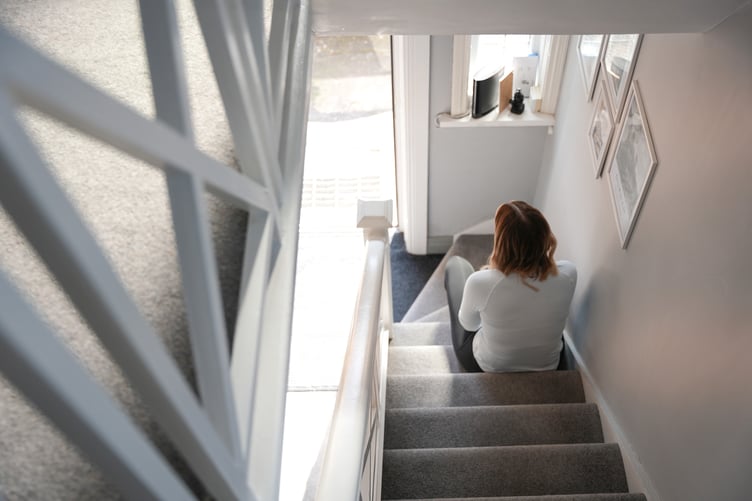To mark National Schizophrenia Awareness Day (July 25) Mind Cymru addresses common misconceptions about schizophrenia , emphasising the stigma faced by those with mental health issues in Wales.
According to research from Wales’ national anti-stigma mental health campaign, Time to Change Wales, while two in three people would be willing for someone with symptoms of depression to live next door to them, only 46 per cent feel the same way about someone living with symptoms of schizophrenia.
What is schizophrenia?
‘Schizophrenia’ is a controversial mental health diagnosis, related to psychosis. It doesn’t have a clear definition, and mental health professionals disagree about whether it should still be used at all. ‘Schizophrenia’ is a label that has been given to lots of people over time, who have all had very different mental health symptoms.
Misconceptions
· Schizophrenia doesn’t mean you have a 'split personality' or ‘multiple personalities’. Experiences like that are a feature of a different diagnosis (Dissociative Identity Disorder) which is heavily linked to childhood trauma. But schizophrenia isn’t anything to do with personality or identity.
· Schizophrenia doesn’t make you violent. Most people with schizophrenia don’t commit violent crimes - some research suggests the risk could be slightly higher, but evidence shows factors like drug and alcohol use are far more likely to play a part. People with schizophrenia are more likely to be victims of crime – or to harm themselves – than they are to harm someone else.
· Black people are not more prone to schizophrenia. However, in white western cultures, Black people are more likely to be given this diagnosis. Challenging life experiences, barriers to accessing early support, and unconscious bias and a lack of cultural competency from medical professionals are more likely explanations.
· Hallucinations and delusions aren’t the only symptoms. Negative symptoms – things that take away from your everyday life – are just as much a part of schizophrenia. These can include difficulty concentrating, being disconnected from our emotions, disorganised thinking and speech, wanting to avoid people, and a lack of interest or enjoyment in things.
· There are treatment options. Managing symptoms of schizophrenia often includes medication, usually antipsychotics. But things like talking therapy – particularly CBT and art therapy - often also play an important role in understanding symptoms and coping with distressing feelings.
What are the symptoms?
- Delusions (strong beliefs that others don’t share)
- Hallucinations, such as hearing voices or seeing things that others don’t
- Disorganised thinking and speech
- Being unable to express emotions, or feeling disconnected from them
- Difficulty concentrating
- Lack of interest or enjoyment in things
- Avoiding other people, including friends and family
- Difficulty continuing with day-to-day activities, like going to work or taking care of yourself.
Sue O’ Leary, Director at Mind Cymru, says: “We know from studies like the latest Attitudes to Mental Health survey from Time to Change Wales, that levels of mental health stigma have been shown to be at some of their highest ever in Wales today.
“This means that not only are more people with mental health problems likely left feeling isolated, scared and confused by their experiences than ever before, but so are many more people they are close to.”
“Following the closure of Time to Change Wales earlier this year, and for all these reasons, Mind Cymru is continuing the fight against mental health stigma,” Sue added. “Raising awareness of the challenges people with mental health problems are facing, and supporting events like National Schizophrenia Awareness Day is a key part of this.”
The symptoms of schizophrenia also heavily overlap with a lot of other mental health experiences - including psychosis, depression with psychosis, bipolar disorder, personality disorder, PTSD and others – and it’s possible that they might be diagnosed instead.
Sarah (pseudonym) has lived with schizophrenia since a breakdown in 2005. She says:
“The stigma around schizophrenia is isolating and can make you feel as though you’re the only one going through it. I sometimes feel paranoid, as though people around me are talking about me, but I find it best to be straightforward and ask people (when it feels safe to do so) – otherwise I won’t sleep at night and that can make me unwell. I need that peace of mind.”
If you are concerned about schizophrenia or related symptoms in relation to your own mental health or on behalf of someone you know, you can seek support in a number of ways by:
- Calling one of Mind’s Helplines or accessing information on the Mind website.
- Reaching out to Mind’s online community Side by Side, available 7 days a week and 24 hours a day at https://sidebyside.mind.org.uk/
- Contacting one of 16 local Minds offer face to face services across Wales, including talking therapies, peer support and advocacy.
- Contacting other specialist support organisations such as hearing-voices.org, hubofhope.co.uk or nationalparanoianetwork.org





Comments
This article has no comments yet. Be the first to leave a comment.